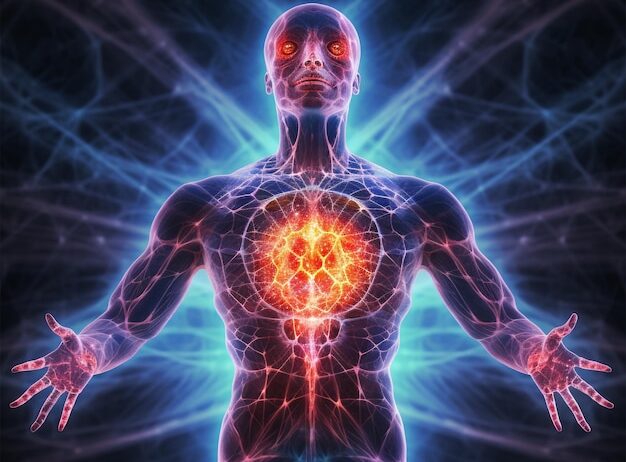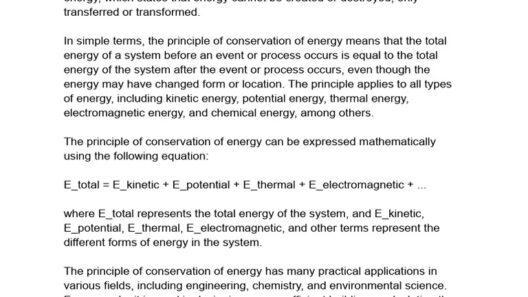The human body is an intricate system that has evolved over millennia to optimize its energy expenditure and conservation. This remarkable ability is crucial for survival, particularly in environments where resources are scarce. To understand how the body conserves energy, one must explore the physiological mechanisms involved, the role of cellular processes, the impact of environmental factors, and the significance of lifestyle choices.
Energy conservation begins at the cellular level with the metabolic processes that govern how our bodies convert food into usable energy. The primary energy currency of the cell, adenosine triphosphate (ATP), is produced through cellular respiration, a process that takes place in the mitochondria. The mitochondria efficiently harness energy from macronutrients—carbohydrates, fats, and proteins—transforming them into ATP via glycolysis, the citric acid cycle, and oxidative phosphorylation. This complex interplay of biochemical reactions allows cells to produce ATP as needed while limiting wasteful metabolic activities.
Beyond cellular respiration, the body also conserves energy through endocrine regulation. Hormones such as insulin, glucagon, and cortisol play pivotal roles in the balance of energy storage and mobilization. For example, when blood glucose levels are high after a meal, insulin facilitates the uptake of glucose into cells, promoting energy storage in the form of glycogen in the liver and muscles. Conversely, during fasting or prolonged physical exertion, glucagon is secreted to initiate the breakdown of glycogen into glucose, releasing it into the bloodstream. This fine-tuned hormonal response ensures that energy reserves are maintained and utilized efficiently, preventing unnecessary depletion of stored energy.
Moreover, the body employs thermoregulation as another mechanism for energy conservation. The hypothalamus, acting as the body’s thermostat, regulates body temperature through processes like vasodilation and vasoconstriction, along with perspiration and shivering. In a cold environment, the body minimizes heat loss through vasoconstriction, conserving energy by requiring less metabolic energy to maintain a stable core temperature. Conversely, in a hot environment, perspiration allows for evaporative cooling, which uses energy from the skin’s surface but reduces the overall need for the body to expend additional energy on thermogenesis.
The metabolic rate—the rate at which the body expends energy—also plays an integral role in energy conservation. Basal metabolic rate (BMR) refers to the energy expended at rest for maintaining basic physiological functions, such as breathing, circulation, and cellular metabolism. Factors such as age, sex, body composition, and overall health influence BMR, underscoring the need for individualized approaches to energy conservation. For instance, muscle tissue is metabolically active and requires more energy to maintain than adipose (fat) tissue. Consequently, individuals with higher muscle mass typically have a higher BMR, enabling a more efficient energy use and conservation strategy.
Nutritional status is another critical determinant of the body’s ability to conserve energy. Caloric intake must be balanced with energy expenditure for optimal functioning. When calorie intake is reduced, the body enters a state of conservation, lowering the metabolic rate to preserve energy reserves. Conversely, excessive caloric consumption can lead to weight gain and increased energy demands. Thus, understanding the quality and quantity of one’s diet plays a vital role in how efficiently the body can conserve energy.
The influence of physical activity on energy conservation cannot be overstated. Regular exercise can lead to adaptive physiological changes that enhance the body’s efficiency in using energy. Aerobic training improves cardiovascular health and increases mitochondrial density within muscle cells, fostering a more efficient energy production system. Additionally, resistance training increases muscle mass, contributing to a higher BMR. However, it is important to strike a balance; excessive physical activity without adequate energy intake can lead to energy deficits, compromising the body’s ability to conserve energy effectively.
Stress, both physiological and psychological, can also impact energy conservation mechanisms. The stress response activates the sympathetic nervous system and results in the release of catecholamines, which prepare the body for ‘fight or flight’. While this response can temporarily enhance energy availability, chronic stress can lead to hormonal imbalances and metabolic dysregulation, ultimately hindering energy conservation. Therefore, managing stress through techniques such as mindfulness, adequate sleep, and leisure activities is paramount for maintaining an efficient energy balance.
Environmental factors are equally influential in determining how the body conserves energy. Changes in temperature, altitude, and humidity can affect metabolic processes and energy expenditure. For instance, higher altitudes with lower oxygen levels can increase energy demands for maintaining aerobic capacity. Adaptations such as increased red blood cell production occur over time to improve oxygen transport and utilization, showcasing the body’s remarkable capacity for adjustment in response to environmental challenges.
In conclusion, energy conservation in the human body is a multifaceted process governed by a variety of physiological mechanisms. From cellular respiration and hormonal regulation to thermoregulation and the impacts of physical activity, nutrition, stress, and environmental factors, these elements intertwine to create a robust system for managing energy balance. A comprehensive understanding of these processes illuminates the complexity of human physiology, revealing how essential it is to maintain a healthy lifestyle that fosters energy efficiency. By appreciating the body’s remarkable ability to conserve energy, individuals can make informed choices that enhance their overall well-being while fostering sustainability in resource use. This knowledge is not only pivotal for personal health but also vital in a world increasingly challenged by the implications of climate change. Managing energy responsibly at all levels—from biological to ecological—remains a fundamental aspect of living in harmony with our planet.







